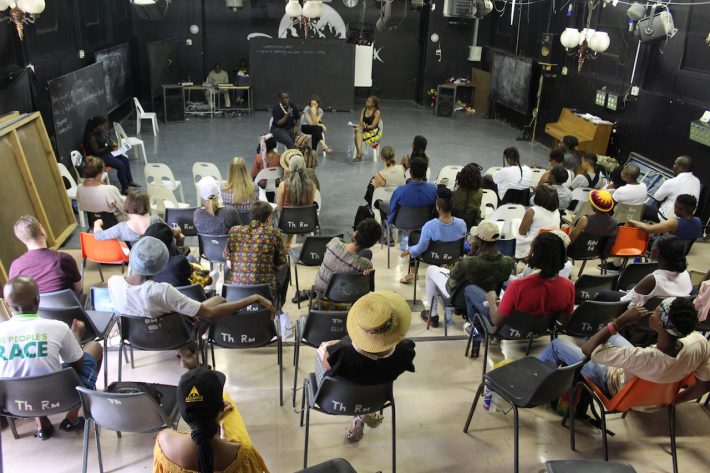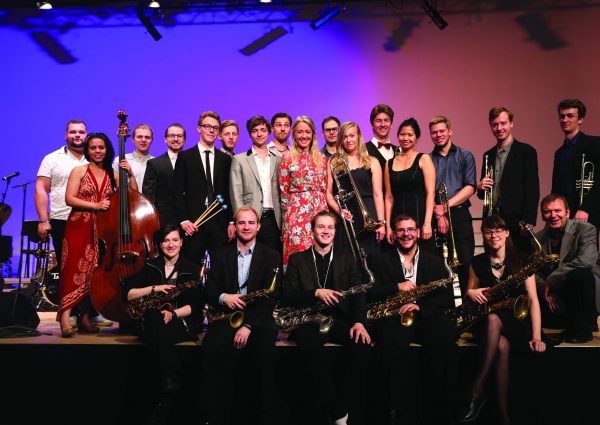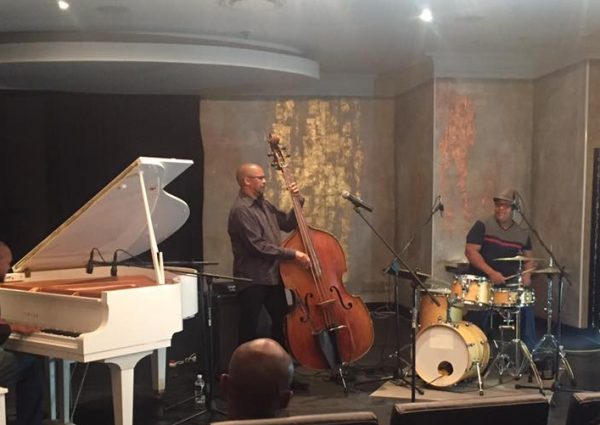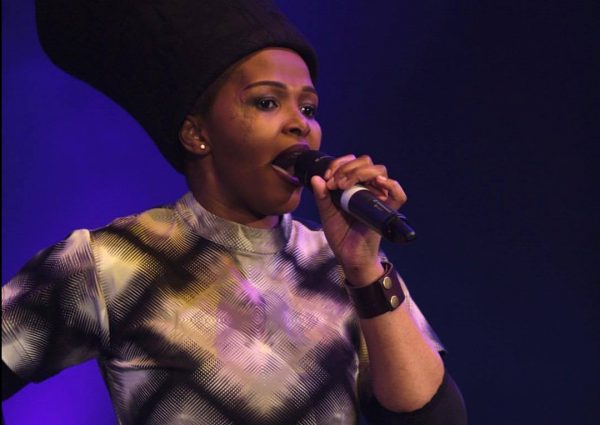Ba Re E Ne Re Literature Festival was a festival of stimulating ideas around literature, writes ART STATE Publisher Mpho Matsitle.
No serenity here
First, let’s get the insults out of the way: we need to quit the pretence that Lesotho is a country. By we I mean the South African Department of Home Affairs. The difficulty of crossing the Maseru border from the South African side would make one believe that Lesotho is an enemy state. And anyone who dare go over there – be they Mosotho or South African – has defined themselves outside of humanity. Otherwise why would you make people queue outside in the oppressive heat when there’s a perfectly functioning and air-conditioned building constructed for that very purpose eating itself up?
Or rather the late Keorapetse Kgositsile asked a better question; “When, then, did the brutality of imperialist appetite and aggression evolve into something of such ominous value to us that we torture [people] for having woken up on what we now claim, with perverse possessiveness and territorial chauvinism, to be our side of the boundary that until only yesterday arrogantly defined where a piece of one European property ended and another began?”
Step along children
An hour later we are allowed to enter the country – which welcomes us with relative ease and efficiency. “I know they tried to stop us,” the Culture slow-jam best captures our relief as we step along into the mountain kingdom. We are relieved from the burning of the sun, but not of questions. The first from our phones; “activate roaming?” No – it’s January hawu! These service providers have no sense of occasion. An accusation a friend threw at BareLitFest organisers when I asked her to accompany me, to quote her verbatim: “Artsy people don’t care about January neh?”
Critical literacies
Our misadventures at the border have cost us the first hour of the festival. We arrive just in time for the first panel discussion on critical literacies. The two-hander panel prided itself in UK born-and-trained multi-media artist and researcher Emma Wolukau-Wanambwa who drew her submissions mainly from her experience as Director of Research-at-Large at the Nagenda International Academy of Art & Design in Uganda. Her partner Andrea Thal, the Artistic Director at Cairo’s Contemporary Image Collective, was as enamoured with Emma’s contribution as the rest of the packed theatre hall that she deferred to her on most questions.
And it is these questions – the power of which lay with the cantankerous Mookho Makhetha – that brought it to my attention, rather forcefully, that this was a literature festival, not a book festival. And that there was a difference.
Throughout the festival, not a single author took to stage. There were no book stalls nor book launches. Because literature goes beyond books.
This particular conversation on critical literacies did not merely focus on reading and writing. But was opened wide open, with Andrea and Mookho leaning towards the visual arts side and Emma stretching it to encompass even pedagogy and politics. It is from the latter that the house was tasked with the conundrum “can critical literacies can exist in an uncritical society?” The old chicken-egg paradox – what comes first, a critical society or critical arts?
Townhall – Ba Reng Batho
However no such paradoxes with the programme of the day, after a quick round of questions from the floor – the majority of which co-signed the leadership provided from the panel – we were invited to go outside to gather our thoughts for the townhall meeting on Perspectives on Museum and Gallery Curation. The evidence leaders were Lerato Bereng, an associate director at the Stevenson Gallery, and Nthabiseng Rammatli, curator of the Gloo@work well-traveled pop-up gallery.
The perennial gripe of white elephant museums and galleries drew most attention. It would seem Maseru – nevermind the kingdom in its entirety – has a shortage of museums and galleries. The few that are there are inaccessible and hardly cater to the tastes or needs of Basotho. Leading to their white elephant status, and (one would guess) the reluctance of the powers that be to erect more.
The problem, clearly, is in the curation. “There’s more to us than the hat and blanket,” an audience member decried the atavistic and anthropological curatorship rampant in the official spaces. Which highlighted the gaze to which the curators cater: the white American/European tourist.
Cue Ngugi: decolonise, and move the centre.
Which is exactly what spaces like Nala Market where Nthabiseng has been running the pop-up galleries are doing. Which leads to the question; instead of filling up the art galleries with people, should we not be filling the spaces where people gather with art? The carwashes, chisanyamas, concerts etc. All of these are ripe for visual art exhibitions. We must not just assume that the Western way of consuming art in pristine silent spaces is the only way. The dichotomy between Wololo and Wangecheti is false; both can exist in the same space.
Keynote: Liepello
It was left to Mpho Letima to have the last say of the educational afternoon. She was poised to deliver the Annual Liepello Rantekoa Keynote, in celebration of the life of the founder of the festival. Her task, as had been the case throughout, was a mammoth one: decolonising learning. It was a fitting tribute to the young festival and its attendees, and this particular installment.
In our bid as the young, wild and free of Africa to control our narrative, much has been said of the need to unlearn, learn and relearn – ‘Me Mpho’s task was to question how this learning happens. A pedagogical exercise that she carried with an unprecedented level of enthusiasm, involving the whole hall in her address – that is; democratising the learning. She wasn’t just a teacher filling empty heads of students, but a co-learner leading the learning exercise.
Closing Bell
In the spirit of defying the stereotyped lenses of what Basotho culture is, Ba Re Lit closed shop with a generous performance by the egnimatic Morena Leraba: Dressed in typical Mosotho shepherd attire, spitting over electro beats. It was a captivating performance to close off an equally captivating festival of ideas around literature.






